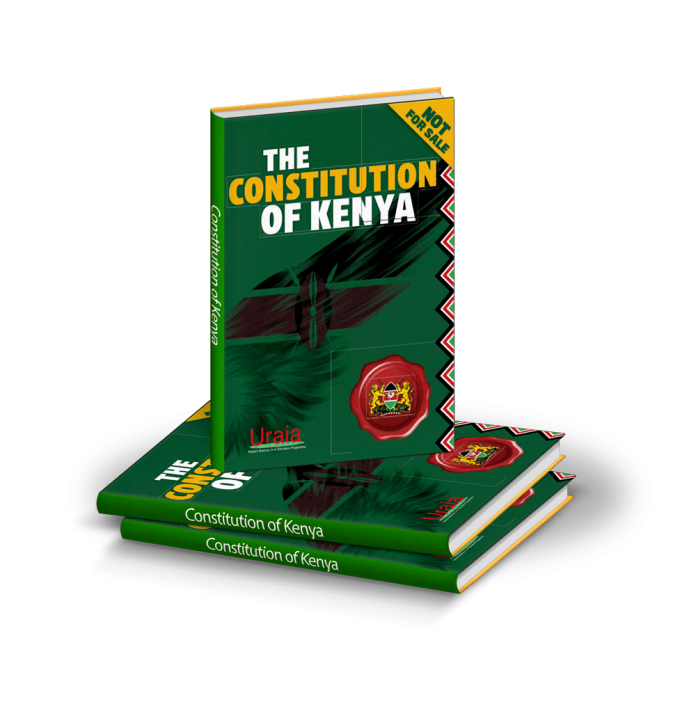The constitution is a written document that has special legal sanctity and fundamental principles based on wide spread public legitimacy and established precedents that governs a state or an organization. It sets out the framework and the principal functions of the organs of government within the state and declares the principles by which those organs operate.
The constitution is the supreme law in Kenya and cannot be unilaterally changed by an ordinary legislative act. Any law, including customary law, that is inconsistent with the constitution is void to the extent of the inconsistency, and any act or omission in contravention of the Constitution is invalid.
Article (2) of the Kenyan constitution states that that the constitution is the supreme law of the Republic and binds all persons and all State organs at both levels of government. It further states that No person may claim or exercise State authority except as authorised by the constitution and that the validity or legality of the constitution is not subject to challenge by or before any court or other State organ.
The constitution is a binding document, it binds everyone in the state including ordinary law-making institutions of Government. Every person has an obligation to respect, uphold and defend this Constitution.
The Kenyan Constitution has eight chapters divided and sub-divided into titles, chapters, articles, sections, paragraphs or clauses. This arrangement varies according to their provisions.
The layout of the Kenyan constitution follows the following structure:
- Preamble: a statement of the overarching motives and goals of the constitution-making exercise, sometimes referring to important historical events, national identity or values.
- Sovereignty of the people and Supremacy of the Constitution: Declaration of sovereignty, how sovereignty can be achieved, validity and compliance of the constitution.
- The Republic: Declares Kenya a Republic, Defines the Territories of Kenya, explains devolution and access to services, states the National, official and other Languages of the Republic, mentions the religions of Kenya, National symbols and National days, National values and principles of governance and Kenyan Cultures.
- Citizenship: explains entitlement of citizens, retention and acquisition of citizenship, types of citizenship, revocation and legislation of citizenship.
- The bill of rights: elaborates the rights and fundamental principles, state of emergency and the establishment of Kenya National Human Rights and equality Commission.
- Land and environment: addresses land ownership and environmental protection.
- Leadership and integrity: sets out the principles of leadership and integrity for public officials.
- Representation of the people: Describes the electoral system and processes.
- The Legislature: States the procedures of enacting legislation, the establishment and the role of parliament.
- The Executive: Explains the presidency and the cabinet.
- The Judiciary: Explains the legal system, judicial authority and the Courts of Kenya.
- Devolved government: Defines the role of the County governments and the principles of devolved government.
- Public finance: Deals with Financial management of the Republic.
- The public service: Explains the values and principles of public service.
- National security: Defines the National Security organs (Kenya Défense Forces, National Intelligence Service and the National Police Service)
- Commissions and independent offices: Explains the composition, appointment and terms of service of independent offices and commissions.
- Amendment of the constitution: Describes the process of amending the constitution.
- General provisions: Explains the enforcement of the constitution.
- Transitional and consequential provisions: Describes consequential legislation.


